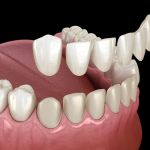- 1-Understanding-Nighttime-Teeth-Grinding
- 2-Common-Causes-of-Teeth-Grinding-at-Night
- 3-Effective-Treatments-for-Night-Teeth-Grinding
- 4-Natural-Remedies-to-Stop-Teeth-Grinding
- 5-Professional-Help-and-Preventive-Measures
1. Understanding Nighttime Teeth Grinding
Teeth grinding, also known as bruxism, is a common condition affecting many individuals during sleep. It involves involuntary clenching or grinding of teeth, which can lead to jaw pain, headaches, and dental damage. Understanding how to treat teeth grinding at night is essential to prevent these complications and ensure restful sleep.
Often, teeth grinding goes unnoticed until symptoms like worn tooth enamel or facial discomfort arise, making early detection and treatment crucial.
1.1 Symptoms and Signs
Common signs include morning jaw soreness, tooth sensitivity, and audible grinding sounds during sleep noticed by partners. Recognizing these symptoms early helps in seeking timely treatment.
2. Common Causes of Teeth Grinding at Night
Several factors contribute to nighttime teeth grinding, including stress, anxiety, sleep disorders, and misaligned teeth. Lifestyle factors such as caffeine or alcohol consumption can also exacerbate the condition.
Understanding the root cause plays a vital role in tailoring effective treatment strategies.
3. Effective Treatments for Night Teeth Grinding
When considering how to treat teeth grinding at night, a combination of dental devices, behavior modification, and relaxation techniques is often recommended.
3.1 Mouthguards and Splints
Custom-fitted mouthguards from dentists create a protective barrier between teeth, reducing wear and minimizing damage. These devices are among the most effective and commonly prescribed treatments.
3.2 Stress Management Techniques
Incorporating stress reduction methods such as meditation, yoga, or counseling can lessen grinding triggered by anxiety.
4. Natural Remedies to Stop Teeth Grinding
Many seek natural ways to address teeth grinding. Techniques such as applying warm compresses to relax jaw muscles before bed, avoiding stimulating substances late in the day, and practicing good sleep hygiene contribute to reducing bruxism.
Additionally, gentle jaw exercises can alleviate muscle tension.
4.1 Case Example
Jessica, a busy professional, successfully reduced her nighttime grinding by combining a dentist-prescribed night guard with nightly relaxation rituals and dietary changes, highlighting the effectiveness of integrated approaches.
5. Professional Help and Preventive Measures
If self-care and natural remedies don’t fully resolve teeth grinding, seeking professional evaluation is essential. Dentists can identify underlying issues, fit appropriate devices, and monitor dental health.
Regular dental check-ups help detect early signs of damage and guide preventive care.
For personalized advice, high-quality dental appliances, and expert guidance on how to treat teeth grinding at night, consider exploring trusted resources like Dentistry Toothtruth. Their products and services offer effective solutions to protect your smile and improve your sleep quality.







 Tacoma Dental Care, Dr. Thi Truong Nguyen, DMD.5.0 (29 review)
Tacoma Dental Care, Dr. Thi Truong Nguyen, DMD.5.0 (29 review) Will County Community Health Center2.0 (177 review)
Will County Community Health Center2.0 (177 review) Isabel Correa DDS inc.3.0 (11 review)
Isabel Correa DDS inc.3.0 (11 review) Dr. Joseph V. Esposito, DDS0.0 (0 review)
Dr. Joseph V. Esposito, DDS0.0 (0 review) All Family Dental and Braces4.0 (689 review)
All Family Dental and Braces4.0 (689 review) KK Dental Edison NJ4.0 (396 review)
KK Dental Edison NJ4.0 (396 review) The Importance of Oral Health Education During Pregnancy for a Healthy Pregnancy
The Importance of Oral Health Education During Pregnancy for a Healthy Pregnancy Best Tips for Brushing Your Teeth Properly for Healthy Gums: Essential Techniques for Oral Health
Best Tips for Brushing Your Teeth Properly for Healthy Gums: Essential Techniques for Oral Health Why Skipping Dental Checkups Can Lead to Bigger Oral Health Problems
Why Skipping Dental Checkups Can Lead to Bigger Oral Health Problems Advantages of Porcelain Dental Restorations
Advantages of Porcelain Dental Restorations How Can Diabetes Cause Tooth and Gum Problems? Preventing and Managing Oral Health Issues
How Can Diabetes Cause Tooth and Gum Problems? Preventing and Managing Oral Health Issues Healthy Habits for Promoting Good Oral Health and Hygiene: Tips for a Healthy Smile
Healthy Habits for Promoting Good Oral Health and Hygiene: Tips for a Healthy Smile